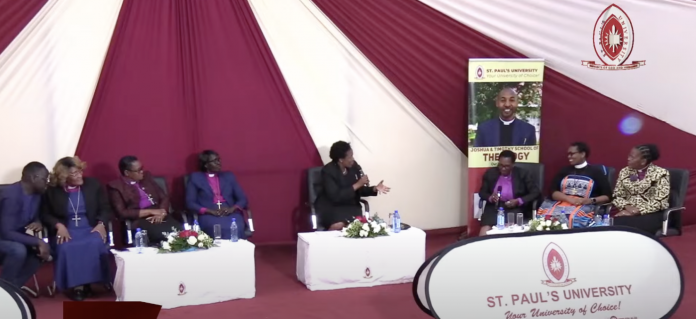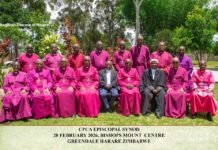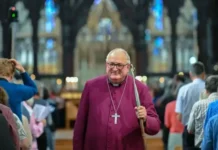Six African Anglican female bishops—fondly known as the “Africa Six”—gathered at St Paul’s University in Nairobi, Kenya on 11 January to share their ideas and inspirations about “Christian Leadership for the 21st Century.”
The gathering—attended by more than 500 people—observed the Thursdays in Black campaign for a world free from rape and violence.
In a panel discussion hosted by St Paul’s University in partnership with African Anglican Sisters in Leadership Journeying Together, the bishops shared their personal journeys.
Introducing the “Africa Six,” Prof. Esther Mombo, senior lecturer at the university, celebrated the auspicious day, and acknowledged it has not been easy for the women bishops to rise into their leadership roles.
“Women have to be leaders because leadership should reflect the members of the church,” she said. “For a long time, women have been in the pews and men have been at the altar.”
Now, the “Africa Six” and others in the ecumenical family are creating room for many more female leaders who rise from the pews and take on leadership roles, Mombo said.
One of the bishops who spoke was Rev. Filomena Tete Estevã, the first woman bishop for the Anglican Church in Angola and Mozambique.
“It wasn’t and it will not be easy but I believe that we have a God who can do everything for us,” she said. “We carry the flag of women.”
Estevã drew applause as she stated: “I am the first woman bishop in the churches in Angola and I carry the flag for all the women in Angola showing their representation in the church.”
Another speaker, Bishop Dr Dalcy Badeli Dlamini, became the second woman bishop in Eswatini, and the fourth woman bishop in southern Africa.
“It’s such an honor and privilege to be amongst the Africa Six,” she said. “It’s really humbling.”
Rev Dr Vicentia Refiloe Kgabe, bishop of the Diocese of Lesotho, described her view of her leadership and service: “One kingdom, one bishop—who happens to be a woman,” she said. “Leadership is the one who goes through the fire to purify for those who come next.”




[…] Source link […]
[…] African Anglican female bishops, known as the “Africa Six”, have gathered at St Paul’s University in Nairobi, Kenya, to share their views on “Christian […]
[…] African Anglican female bishops, known as the “Africa Six”, have gathered at St Paul’s University in Nairobi, Kenya, to share their views on […]
[…] African Anglican feminine bishops, often known as the “Africa Six”, have gathered at St Paul’s College in Nairobi, Kenya, to share their views on “Christian […]